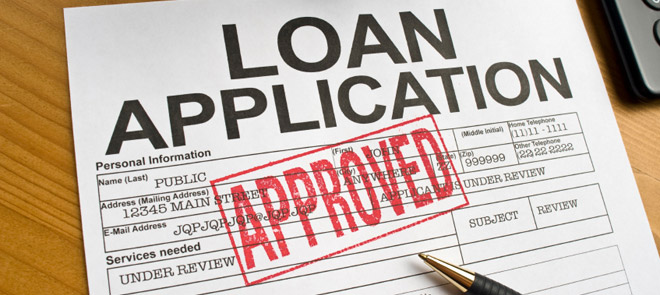Learn more about Private Lenders Business Loans
We have created these commercial loan page for all of our borrower who have a business and own some real estate if you own a house, a condo, or some land we can help you get funding for fix and flip your next investment property.
- Prepare a business loan
- Decisions to make before applying for a loan
- Improve your loan chances of getting a loan approved
- Understand your business’s risk profile
- business Loans Frequently Asked Questions
Prepare a business loan:
When applying for a business loan, it’s essential to fully inform the lender about your proposed venture.
Providing this type of information will help the lender advise the right finance for you.
Making decisions:
Deciding that your business needs a loan is only the first step – there are a number of other factors to consider before you approach a lender:
- How much do you need to borrow?
- What type of loan will you need?
- How long will you need it for?
- Can the business afford to repay the loan, interest and any one-off or ongoing fees that come with the loan?
- What security can you offer the lender, and how will this affect the interest rate offered?
How often will you need to access funds you borrow?
Line of credit – are available if you need to:
- access the funds on a semi-regular basis to help with cash flow
- keep the business operating while waiting for your customers to pay for goods.
Upfront loans
Upfront loans – also know as a ‘fully drawn advance’ – provides the entire loan amount all at once, and are available if you need funds to:
- buy a new business
- buy equipment to expand your existing business.
What loan terms are right for your business?
- Loans that are ‘at call’ have no fixed terms.
- Loans provided ‘upfront’ will need a portion of the loan plus interest paid back – at regular intervals.
The repayment amount will depend on the term or length of the loan. To determine the loan term suitable for your business, you’ll need to calculate how much you can afford to service the loan.
Here’s a tip: the longer the loan term – the more total interest you’ll pay.
What’s the level of ongoing funding you’ll need?
This is the average amount of an overdraft – or line of credit – that’s used at any one time.
For example, you may want to have an overdraft limit of $20,000 to provide money for the occasional big expense – but usually you won’t use more than $5000 of that credit limit on average. So in this instance, $5000 is the level of ongoing funding you’ll need.
When applying for an overdraft limit, be mindful that:
- the higher the overdraft amount – the higher the fees
- there could be clauses in the contract where the lender can demand repayment of the whole loan – at any time.
Is a fixed or variable interest rate better?
The choice of rate will affect:
- the stability of repayments
- overall cost of the loan
- the loan features available.
Ultimately, the choice of variable or fixed rates will depend upon how much free cash flow your business generates after you’ve paid all your expenses – including loan repayments:
- With a fixed rate loan – the lender bears the risk of interest rate moves.
- With a variable rate – you’ll bear the risk of interest rate moves.
Here’s a tip: if your business has a low profit level, a variable rate loan repayment may rise beyond your ability to pay.
Loan security
Loans can be secured or unsecured by various types of assets, including:
- residential
- commercial
- rural property
Alternatively, some loans are unsecured by any asset. In most cases, the less you provide for security, the higher the interest rate will be.
Here’s a a tip: if you can’t repay a loan on time, be aware that the lender has the legal right to seize any property or asset you offer as security.
Fees
There can be fees which can make a loan less attractive than it first seems. These include:
- one-off fees– such as establishment or application fees
- exit or discharge fees
- early termination fees
- regular fees – such as service fees or line/credit advance fees.
Seek advice
Although the information we’ve provided presents you with a range of possible finance options – it’s important to seek advice from your accountant or business advisers before approaching a lender for a loan.
Plan the business, plan the finance
Lenders will ask for a lot of in-depth information about the financial history of the business.
It’s also important for you to create a convincing and detailed business plan which should include a profit and loss budget and cash flow forecast.
The information you use to build your business plan may also be needed by the lender to assess your project. This includes:
- the past and future plans for your business
- the people working in it
- the market itself.
Here’s a tip: the outcome of your application is strongly influenced by how well your proposal is researched and how well it’s presented.
Risk assessment
Banks and other lenders will look at your business’s risk profile when considering your loan application.
Understanding what lenders look for and what they consider risky will help you present your business in a favourable manner.
As a general rule, lenders look for:
- the level and nature of your security – what you’re offering to give them if you can’t repay the loan
- your ability to make regular loan repayments – cash flow risk
- your ability to ultimately repay the debt (business risk) – including any other debts you might already have.
You need to be able to assess the level of cash flow – or business risk – in your specific circumstances. A projection of the cash requirements of the business is most important to a lender because:
- it’s the actual cash left after expenses that will repay the loan – not income
- it demonstrates you’re an effective manager.
A lender’s perception of risk
The following risk factors can influence your lender’s perception of risk. If a number of these areas apply to you and your business, you may need to consider another source of finance:
- Start-up businesses incorporate financial, business and management risk.
- Lack of security.
- Lack of business history.
- Industry sector – factors include levels of competition, barriers to entry, profitability profile and current economic conditions.
- Highly seasonal businesses such as swimwear or agriculture – you’ll need to demonstrate how you propose to deal with cash flow pressures in the off season.
- Lack of planning, market knowledge and finance skills.
- Poor credit history.
Exercise caution if you have a tax debt
A lender may not lend to a business if it’s currently in a payment arrangement.
Before entering into a payment arrangement with the Australian Tax Office (ATO), businesses should discuss this with their current or future lenders.
Many businesses are unaware that entering into a payment arrangement with the ATO or other government agencies may adversely affect their current and future financing arrangements.
What’s the minimum loan amount? ( no minimum amount – need to make sense )
Or what’s the minimum a business has to make a year in order to qualify? ( business can make any amount – needs to make sense )
What interests rate is the lowest? ( 12% – 15% ( the better the file the lower the number could be as low as 8% )
What could be the highest? ( 20% – 25% max ( the worse the file the higher the number could be as high as 30% )
Do you collect daily, weekly monthly? Can the client choose? ( depends on the lender could be daily, weekly, and usually not monthly ( but can be done worst case scenario ))
Do you deposit the entire loan amount or does it work in draws? ( no draws , unless it’s a reverse consolidation )
What are the terms as far as the length of the loans? Do they vary? ( depending on credit , past history, could be 6, 12, 18 months (we can customize it out )
Any prepayment penalty? ( no prepayment penalties )
Hard Money Loans
Single Family Homes

Hard Money Loans
Mixed Use Property

Hard Money Loans
Multi Family Homes

Hard Money Loans
Commercial Property

Hard Money Loans
From Private Lenders

Private Lenders
$100K up to $2Mill


